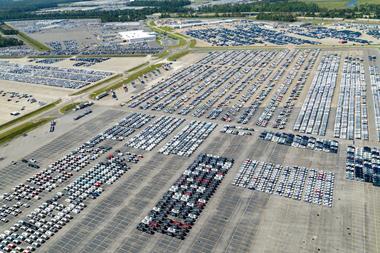Costantino Baldissara highlights how the ECG can expand upon its achievements in education, integration, communication and standardisation.
At ECG, 2013 marks some significant moves forward in critical areas that feature prominently in our mission statement, including operational standardisation, integration, education and information and awareness.One of the things we are most proud of is the ECG Academy course Certificate in Automobile Logistics Management. With the approaching graduating class this spring, we will soon have 135 alumni from the first seven courses, almost all of whom remain within the finished vehicle logistics sector, justifying the investment their parent companies have made in them.
The secret of the course’s longevity is that OEM and logistics providers support it by sending the majority of students. But we are now starting to see interest from suppliers to the vehicle logistics sector, as well as from outside Europe – we will have our first Indian graduate this year.
All these companies are continuing to invest in their people and in the future of their organisations during good times and bad – and it has been bad for many of late. This commitment bodes well for the future of outbound logistics.
Progress through communication
At ECG, much like our member companies, we succeed only when we do not stand still. We are striving to develop the course based on feedback from the students or input from their parent companies, as well as from our partners at the European Business School, which delivers the course. For example, in the last three years we have introduced new sessions on European Union affairs and innovation management in direct response to demand from customers, while keeping a good balance of operational site visits and core management competencies, such as negotiation skills.
More than anything, the course prov ides excellent networking opportunities for students, who build relationships that will last a lifetime. Some of the alumni leave with a desire to continue working together on projects that can benefit the industry. We have tried to encourage this prolonged communication with the development of a group we call the ECG Academy Advisory Group (EAAG). The EAAG now numbers eight industry managers studying efficiency projects, which is a task that is the direct consequence of the joint meetings between ECG and the OEMs under the umbrella of the ACEA working group for automotive logistics.
A big step forward in handling standards
This same forum has led to the endorsement by ACEA of the ECG Operations Quality Manual, which was developed several years ago with the participation and support of a wide cross-section of the industry. This official endorsement really is a big step forward in terms of standardisation, as it was adopted as the ‘minimum standard for the industry’ in the handling of cars and light commercial vehicles. ACEA will also now publish the manual on its own website, while ECG will continue to expand the number of languages into which it is translated to make it as widely available as possible to anyone active in finished vehicle logistics. Already we see the manual being referenced in tender documents and we hope to have the Operations Quality Manual for commercial vehicles similarly endorsed in the near future.
While ACEA does not speak for the whole industry – several carmakers, such as Honda, are not members – its participants build the vast majority of vehicles sold in Europe and ECG will strive to achieve endorsement from the remaining manufacturers to try to ensure we have established a true standard for the industry to use.
Further development
Of course, the vehicles that we move are, for the most part, global ones. As such, we should expect that ultimately, handling standards will also become global as emerging economies rapidly develop. Already we see these manuals being downloaded from our website by people in India and China. We are also talking directly to our friends at the AIAG in North America about how they too can avoid ‘reinventing the wheel’ with their own quality publications.
We have to recognise that our sphere of influence and interest at ECG is limited to Europe, but at the same time there can be benefits to all in collaborating on a wider basis and helping, in any way we can, to set the standards for all in a world that is becoming ever smaller.





















